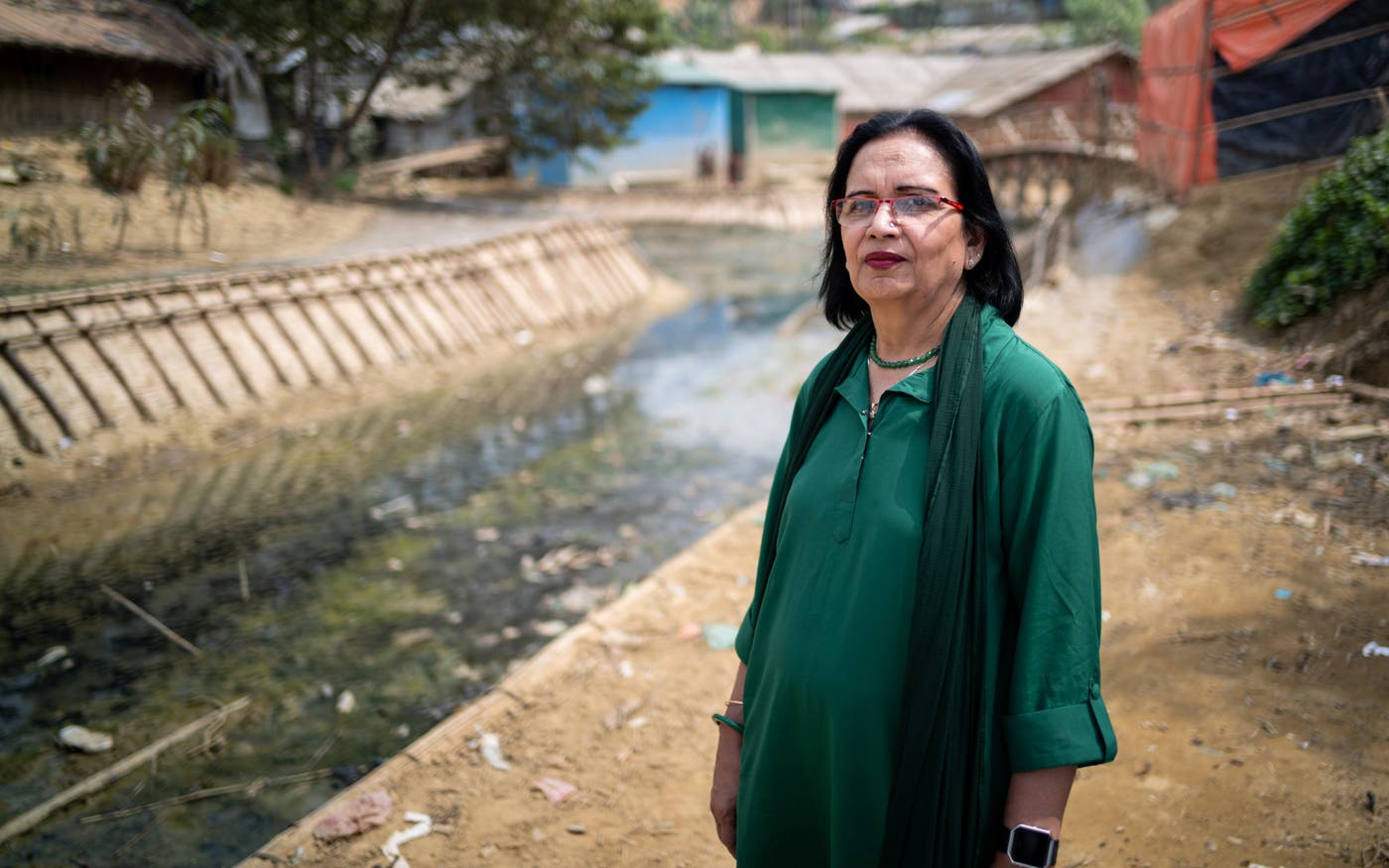
Game changer
A hero in the fight against the world’s longest-running pandemic
For the last 25 years, Dr. Firdausi Qadri has advocated for an affordable vaccine to save lives from cholera.

While all of us are focused on the COVID-19 pandemic, it’s easy to forget about the world’s longest-running pandemic—cholera. Over the last 200 years the deadly diarrheal disease, which thrives in areas without safe water and sanitation, has killed millions of people. The current cholera pandemic—the world’s seventh—started in 1961, spreading from South Asia to Africa and the Americas. Every year, cholera outbreaks around the globe affect about 4 million people and lead to as many as 130,000 deaths.
An affordable, effective, and safe oral cholera vaccine, however, is proving to be a game changer in the fight against this often-forgotten disease. Thanks in large part to recent cholera vaccination campaigns, the number of cholera cases decreased globally by 60 percent in 2018, according to the World Health Organization. Though 2019 saw an increase in cases, the total number of cholera deaths fell by 36 percent.
This breakthrough has been the life’s work of Dr. Firdausi Qadri, an immunologist and infectious disease researcher in Bangladesh. For the last 25 years, Dr. Qadri has been one of the few people advocating for an affordable vaccine to protect entire communities from cholera epidemics.
While there have been several cholera vaccines since the late 19th century, they were expensive and in short supply. In the early 2000s, the main cholera vaccine available was largely used by travelers from rich countries and was not practical for use in vaccination campaigns of poor communities at risk of the disease.
In 2011, Dr. Qadri and her team at the International Centre for Diarrheal Disease and Research, Bangladesh (icddr,b) led a feasibility study on a newer, more affordable oral cholera vaccine, Shanchol. The study, which was done in partnership with our foundation, showed that the inexpensive vaccine could be an effective tool in stopping the spread of cholera in poor, urban environments, giving people more than 50 percent protection against the disease.
Dr. Qadri’s study—the largest trial of its kind—helped lead to a complete change in thinking about how the world could tackle the challenge of cholera. “You can have very good water, sanitation, education, good homes and people won’t have cholera. But until that happens, you need to stop the misery. You need to control the disease,” Dr. Qadri said. “And the vaccine is a one-stop solution.”
To be sure, access to clean water and sanitation are still critically important for controlling cholera in the long-term. During the 19th century, as cholera spread around the world from its original reservoir in India, outbreaks were eventually brought under control in America and Europe through huge investments in water and sewer systems. And work continues to improve access to clean water and sanitation in low-income countries. But infrastructure improvements can be expensive and take time to build and maintain. Cholera vaccination campaigns provide an important tool to save lives immediately and buy time for communities to pursue longer-term water and sanitation solutions.
In 2013, the WHO helped create an oral cholera vaccine stockpile, to contain and prevent outbreaks. Since then, more than 60 million doses have been shipped worldwide. In addition to Shanchol, a second affordable cholera vaccine, Euvichol, is now available, helping to increase vaccine supplies. Gavi, the Vaccine Alliance, is supporting countries to use the cholera vaccine to target cholera “hotspots”—areas at highest risk—to prevent outbreaks before they happen.
This preventive approach will be even more critical in the years ahead because climate change, urbanization, and population growth create ideal conditions for the spread of cholera. Humanitarian crises are also a breeding ground for the disease. The civil war in Yemen, for example, has led to the largest and fastest-spreading cholera outbreak in modern history, infecting millions and killing more than 3,000 people since 2016.
Still, progress is being made. In Bangladesh, the arrival in 2017 of nearly one million Rohingya refugees from Myanmar into overcrowded camps raised concerns about a cholera epidemic. Working with the government, Dr. Qadri led a vaccination program that has helped prevent an outbreak.
“If this vaccination was not carried out, there would be chaotic conditions,” Dr. Qadri said. “We were able to prevent a major, major epidemic and deaths.”
Successes like this have helped fuel new optimism in the fight against cholera. The Global Task Force on Cholera Control, hosted by the World Health Organization, is a partnership of more than 50 institutions all working together to end cholera. The task force’s strategy aims to reduce cholera deaths by 90 percent by 2030, and eliminate cholera in 20 countries, targeting areas where the disease is endemic and shifting from outbreak response to outbreak prevention.
Thanks to the pioneering work of Dr. Qadri, the world is making progress toward this goal. And maybe someday cholera will be a disease that can truly be forgotten.


